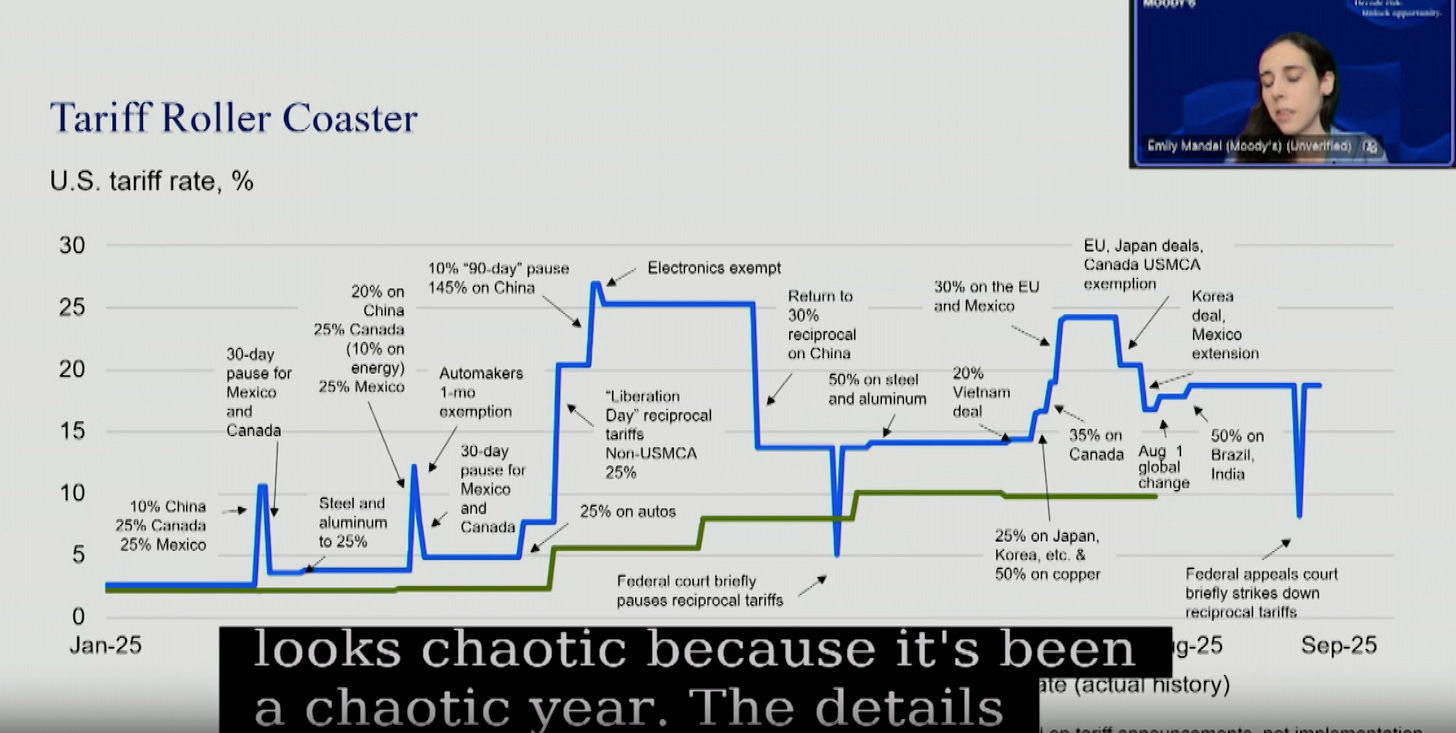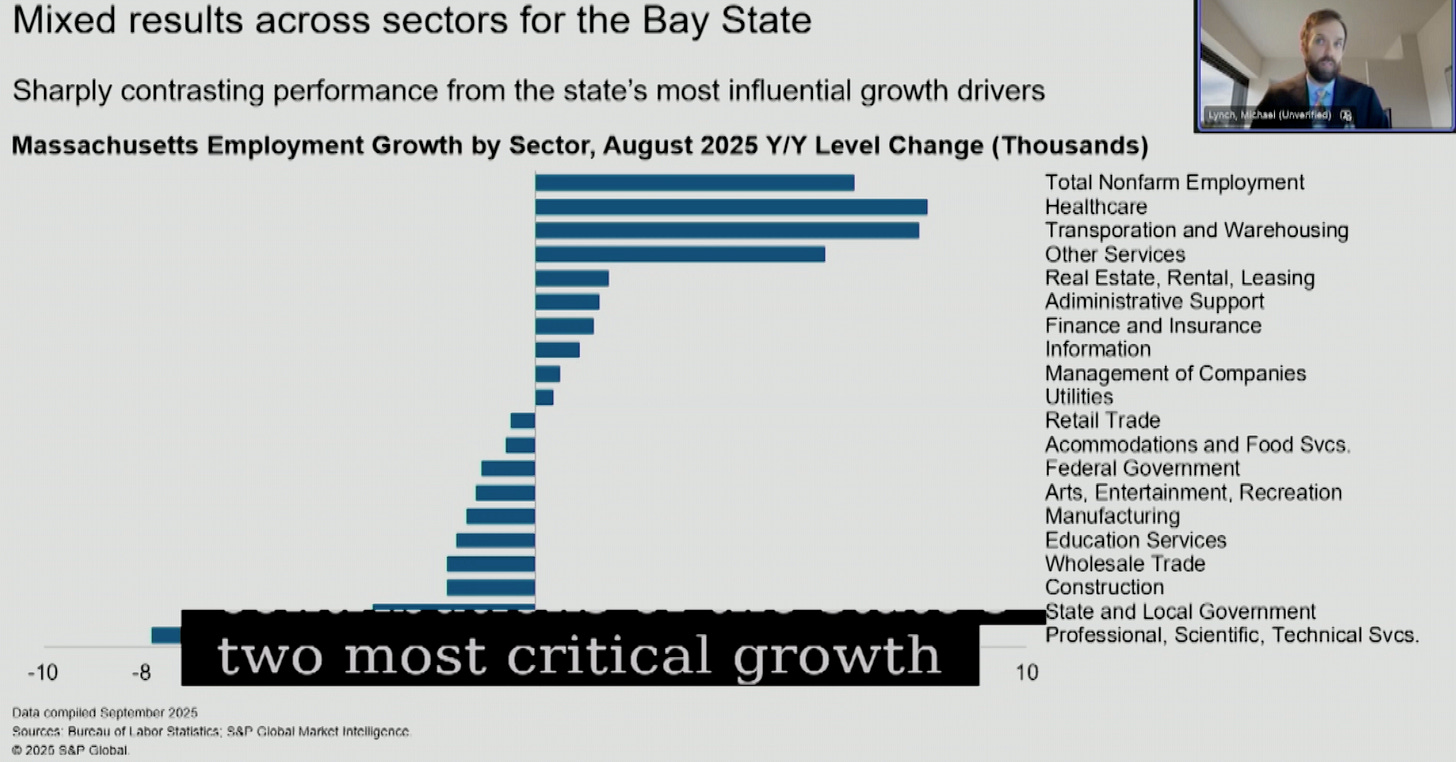We had a full complement of hearings at the State House this week, and you can read all of them here for free this week if you’d like to see what was discussed. But this issue I’m going to focus on one that gets to a nagging question I’ve had about Massachusetts for a while.
Are we in a recession yet?
Mid-year economic roundup
The Senate and House Ways and Means Chairs and the Secretarey of Administration and Finance held a two-hour long meeting to discuss what’s going in the state economy. The transcript is here.
The highlights were that we have:
Rising inflation
Rising labor costs
Stagnant employment growth
Declining corporate tax revenue
Federal policies that could hit our main economic sectors
Potentially $650 million lost in revenue.
Not a highlight, everyone called the One Big Beautiful Bill “OB3”.
Bottom line: that’s not good!
What was starkest was Chair Michlewitz’s statement that these roundtables were useful in managing fiscal turmoil during the pandemic and “now five years later, we are here again attempting to weather another disaster.”
Uncertainty strikes
One of the difficulties they discussed is that there is a lot of “retroactivity” from the federal reconciliation bill, meaning that it’s not clear what the impacts will be on the state budget.
But there is also the trade policy and tariffs that is impacting the forecast that Moody’s provided. As economist Emily Mandel said “This chart looks chaotic because it’s been a chaotic year. The details here are less important than the huge amount of uncertainty that the trade policy has injected into the economy.”
Massachusetts also is overly reliant on healthcare for our employment. As Mandel said “if you take health care out of the employment numbers for Massachusetts, employment peaked back in late 23 or early 2024 and has been essentially flat if you were to include health care in that. And so that heavy reliance on this one industry obscures a lot of weakness elsewhere in the labor market.”
So are we in a recession?
Mandel said “the line of what makes a recession is not as clear cut as, as one might hope I think a lot of it comes down. The major factor is employment. Right? Generally, in order to have a recession, you are losing jobs. You see an increase in layoffs And Massachusetts has been you know, it’s been essentially flat over the past year as far as those employment levels. So not not a strong economy, by that metric, but whether that is enough to signify economy in recession, it’s somewhat a, somewhat subjective at that point.”
Will we be in one soon?
Michael Lynch from S&P Global Market Intelligence gave some warnings: “Our September outlook calls for the state economy to grow at a below average pace, but avoids contraction. The labor market will remain under some stress in the coming years with continuing struggles in the industries that comprise professional scientific and technical services, as well as the sharp deceleration in population and labor force growth that holds back labor supply. The housing market holds steady, but building activity edging up slightly and prices avoiding a correction. And on the policy side, there are notable near term risks to the Massachusetts economic outlook stemming from external factors, which, many of the speakers today have discussed. Mainly federal policies related to trade, research funding and immigration.”
However, there are some big warning signs in there. The biggest job losses have come in the professional, scientific, and technical services component, ie, biotech and tech - one of the pillars of our economy.
My takeaway, as someone who used to parse macroeconomic analysis for a living, is that the picture in Massachusetts is not good, but that’s not set in stone.
It could be that the Supreme Court gets rid of emergency tariffs, which are one drag on growth, that the tech sector bounces back from its AI-induced hiring freezes, and federal research funding starts flowing again after the government shutdown and with court cases striking the halts down.
But we could also very well be in a situation next year where Massachusetts has been targeted by the federal government, with projects shutting down, clean energy companies facing stress from a lack of tax credits, and healthcare groups dealing with a large increase in free care from people who have lost Medicaid or ACA plans.
The point is that we simply don’t know, and I empathize with those on Beacon Hill who are writing budgets to deal with all of this.



